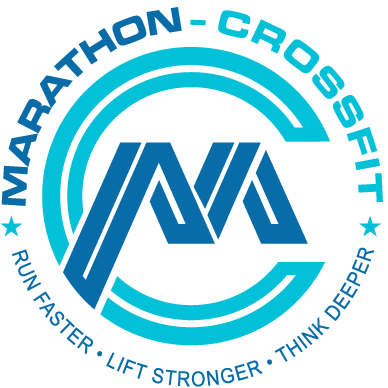Rogue Monster Rig 2.0 vs TITAN plate loaded deltoid machine
This is a comparison of the Rogue Monster Rig and the TITAN plate loaded deltoid machine including pros, cons, and alternatives. Follow the links for more details.

Overview and review of the TITAN plate loaded deltoid machine $479.99
This is an overview of the TITAN plate loaded deltoid machine including pros, cons and alternatives. This article was originally posted in Which gym machine to get from TITAN. Follow the links for additional information.
Overview of the TITAN Plate loaded deltoid machine
The
TITAN plate loaded deltoid machine is another two in one machine from TITAN. With this machine you can do seated presses and deltoid raises. The machine is solid, but nur overbuilt. Resistance is added by loading
plates on the respective pins. The machine fits standard Olympic
plates. This is a great machine for a home gym with more than average floor space. In a commercial gym you might wan to get two separate machines with their own weight stacks. The full list of features for the
TITAN deltoid machine includes:
- Independent arm movement
- Shoulder press sealed bearings
- Olympic sized plate sleeves
- Adjustable seat height to fit athletes of all sizes
- Square steel tube frame construction
- Shoulder press has (2) sets of stationary handles
- Delt raise has 10-in. forearm pads with fixed handles
- Includes rubber feet for secure contact
- Overall Height (U-Frame Extended Up): 65-in.
- Overall Length: 39-in.
- Overall Width: 35-in.
- Back Pad Dimensions: 18-in x 9.75-in x 2.25-in.
- Seat Pad Dimensions: 10.5-in x 11.25-in x 2.25-in.
- Arm Pad Dimensions: 10-in x 5-in x 1.75-in.
- Sleeve Diameter: 50 mm.
- Weight Sleeve Length: 9.75-in.
- Handle Length: 5.25-in.
- Finish: Powder-Coated Black
- Material: 2-in x 2-in 11-GA Steel
- Weight Capacity: 700 lb.
- Product Weight: 149 lb.
Great machine for anyone who has the space in their backyard or basement gym and does not want to shell out money for two separate machines.
Pros of the TITAN Plate loaded deltoid machine
-
2 in 1 design
-
Price
-
Plate loaded
The two in one design of this machine saves space and cost. This is especially interesting for anyone who wants to but a big home gym for themselves. If your clients are into loading
plates on a machine it might even be for a commercial gym.
As with all TITAN products the
deltoid machine is optimized for price. This means that it undercuts the competition by almost half and therefore makes your dollars last longer.
The fact that this machine is
plate loaded means that you also save on paying for the weight stack that normally comes with machines. If you already have
plates and do not mind loading and loading them in the machine, this is another welcome saving.
Cons of the TITAN plate loaded deltoid machine
-
Plate loaded
-
Build
-
Space requirements
Having a
plate loaded machine is great when you are a single person in a basement. It is also ok in a that has a few people around who know what they are doing. This would be a private gym or dedicated powerlifting and weightlifting gym where the general public feels too intimidated to train. In a commercial gym for the masses you are better off with a weight stack for your machines. This results in fewer opportunities to trip up, the clients are in and out quicker and fewer
plates for the staff to clean up.
This machine is been built with the average make in mind, which also holds true for almost all TITAN products. As TITAN uses as much material as necessary, but not more that makes things cost effective. That does not mean that TITAN has the most stable and durable equipment in the market. Rogue and Eleiko follow the philosophy of overbuilding their products. This means you pay more but your stuff is also bullet proof. This is a other reason why TITAN is a great choice for the average Joe who builds a massive gym. If you are a monster, professional lifter, or run a gym with a crowd of roid rage fanatics, than you need to step up a little.
Alternatives to the TITAN plate loaded deltoid machine
Conclusion for the TITAN plate loaded deltoid machine
This is a great 2 in 1 machine for the spacious home gym and fits right in this TITAN strategy. TITAN has multiple of these
plate loaded machines that downtown things to save time and space. For a commercial gym this machine might be a little too haphazard but for home use it is ideal, as long as your basement, garage, of attic is big enough to take a
rack and a couple of machines.
Overview and review of the Rogue Monster Rig 2.0
Price: 1.845 - 6.095$
This review was originally posted in the longer article "Which strength equipment to buy from rogue" in in which you can read about 25 products of Rogue which cost more than 1.000$. The Rogue Monster Rig 2.0 can be a good start to build your first commercial gym. See the details in this article.
Related articles
Overview of the Rogue Monster Rig
The concept behind the
rigs is the backbone of any CrossFit "box" gym. This design is genius in its adaptability and flexibility. As with all highly flexible and adaptable systems, this makes the purchase process a bit more complicated. Before you
buy a rig, make sure you have measured your gym, made some reasonable assumptions about your potential clients, or even better asked them directly. You can spend thousands of Dollars on attachments and space, that your clients might not even use and you, therefore, don't need.
The constant factors in the
Monster Rig built are the width, height, steel notes, and built pattern. The
Rogue Monster rig is 6' wide and 9' high. The steel nodes come in 3x3 11- Gauge steel. The
rigs will be built in a 4-6-4 pattern,
which means that the squat/bench stations are 4' wide while there is 6' space between the stations. The main variations are the length and edition of the
Rogue Monster Rig. The editions are from lowest to highest price:
- Base 2.0 Edition
- Standard 2.0 Edition
- Racked 2.0 Edition
The base version has the lowest cost, The construction gets its stability from double
pull up bars. If you have no clients who want to do muscle ups and you do not want options to place rogue accessories up high for climbing exercises this is the way to go. If you want to be able to do muscle ups ask rogue whether you can swap the double bars to
dirty south bars. This provides the double beam while moving the
pull-up bars out to be able to do muscle ups. The standard Edition might be more cost effective for this purpose.
The standard edition comes in at a slightly higher cost. For this, you get the second generation of the
rigs. Rogue changed their
pull up bars so that muscle ups are possible and there's more support where the bars attach to the
beams of the rig. The upper construction has also been optimized that it can take more accessories. This leaves you with more options for upgrades and more stability, as the upper construction is now sturdier. The base and standard edition are optimized for Crossfit as you can move around the ground more freely. For gyms focused on weight training & powerlifting, you might want more stability and beams.
The
Racked Edition of the Rig adds considerable cost. In return, you will get more rack space. Each bench/squat station now basically turns into an
RM6 rack with one full rack in front and a
half rack in the back. The
half racks could be filled with
Rhino belt squat machines. This setup also enables band work in and outside of the
rack and opens more storage options for
plates. The downside is that this setup is suboptimal for CrossFit gyms. There is too much going on on the ground to freely move around.
The Rogue Monster RIg is available in 4 different lengths which are
- 10'
- 2 Squat/Bench Stations
- 6 Pull-up Stations
- 14'
- 4 Squat/Bench stations
- 8 Pull up stations
- 20'
- 4 Squat/Bench Stations
- 12 Pull up Stations
- 24'
- 6 Squat/Bench stations
- 14 Pull up Stations
The more clients you want to serve in parallel the longer
the rig should be. Choose wisely between the setups especially on your first purchase. Remember that you can always buy more at a later stage. You can even make it a business goal to be able to justify to
make your Rig longer based on growing numbers in classes.
Pros of the Rogue Monster Rig
The Rigs are highly modular and versatile. You can find an option for almost any budget and can do a multitude of exercises in them. The general feedback in the market is that Rogue comes in at a higher price and delivers with solid builds. You can also see how Rogue incorporated client feedback and
kept improving their RIgs based on it. Buying anything out of the
Monster series also protects your investment for the future. Most upgrades are first released for
Monster and are only later made available for
Monster lite if it all.
Cons of the Rogue Monster Rig
How many clients should the Monster Rig 2.0 bring you?
Your first
monster Rig purchase will be very important. If you are at this juncture take a really hard look at your business plan.
- How many people live in the area?
- How many people are already on your books?
- What kind of training do they like?
- Are there other gyms in the area?
- What kind of equipment do they have?
- What do you like?
- What do you dislike?
- What kind of equipment do you have yourself?
- Is it compatible with the Rogue Monster Rig?
- How much space do you have?
- Where are the doors?
- Where are major obstructions?
- Where will you store equipment?
Just to name a few. It is easy to get excited about Rogue's great equipment and get carried away. If you are flush with cash have fun. If you are cash-stricken do multiple iterations of the planning process and reflect with others over it to get the optimum for your dime.
If you think that the
Monster Rig will bring you 7 to 21 new clients who pay you 50$ on a 1-year retainer it is worth the investment. This will yield 4.200$ to 12.600$ in net new revenue against an investment of 1.895$ to 6.095$. Adjust the numbers for your own gym accordingly. If this Rogue is being bought for opening the doors also factor in running costs like electricity, insurance, staff education, and labor.
Alternatives to the Monster Monster Rig
For this, I will go with the average between of 1.895 and 6.095 which computes to 4.995$.
This is the minimum configuration of the little brother of the
Monster Rig.
- Base Edition
- Rig length 10'
The main difference are the holes
which have been drilled into the material. This means that usually more accessories work with the
Monster than with the
Monster lite. Most rogue material is overbuilt for the purpose. I would not worry too much about stability and safety between the
Monster Lite and
Monster versions.
Conclusion
The Rogue Monster Rig 2.0 is an uncompromising start to your new gym. Even the biggest athletes will be able to brutalize it without significant impact or movement in the structure. If you have the money and want to build the best of the best, this is the way to go.

